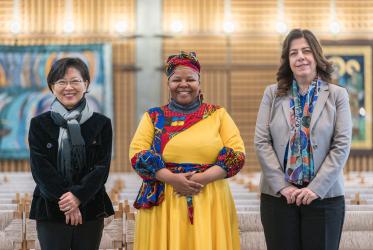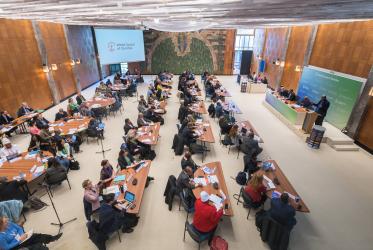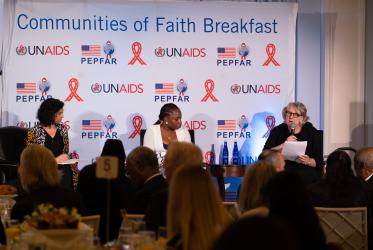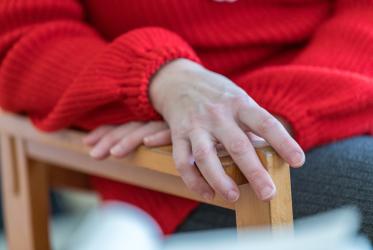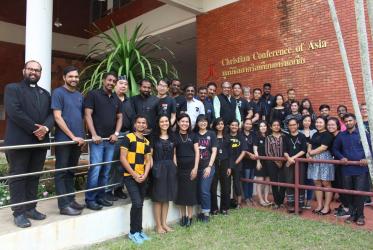Affichage de 1 - 20 de 203
Three WCC commissions elect vice moderators
08 Mars 2024
In Angola, WCC takes human rights approach to obstetric fistula
01 Février 2024
Faith Actors Reflect on Their Role in Reaching HIV Goals at ICASA
21 Décembre 2023
WCC webinar explores decolonizing beauty
11 Décembre 2023
WCC Eco-School begins in Crete
15 Novembre 2023
